Great Astronomers by Robert Stawell Ball (uplifting novels .txt) 📕
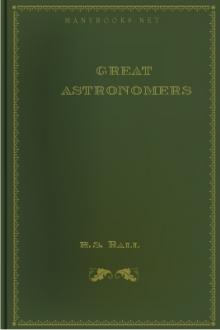
- Author: Robert Stawell Ball
- Performer: -
Book online «Great Astronomers by Robert Stawell Ball (uplifting novels .txt) 📕». Author Robert Stawell Ball
plead that his book had been sanctioned by the Master of the
Sacred College, to whose inspection it had been again and again
submitted. It was held, that if the Master of the Sacred College
had been unaware of the solemn warning the philosopher had already
received sixteen years previously, it was the duty of Galileo to
have drawn his attention to that fact.
On the 22nd June, 1633, Galileo was led to the great hall of the
Inquisition, and compelled to kneel before the cardinals there
assembled and hear his sentence. In along document, most
elaborately drawn up, it is definitely charged against Galileo
that, in publishing the Dialogue, he committed the essentially
grave error of treating the doctrine of the earth’s motion as
open to discussion. Galileo knew, so the document affirmed,
that the Church had emphatically pronounced this notion to be
contrary to Holy Writ, and that for him to consider a doctrine so
stigmatized as having any shadow of probability in its favour was
an act of disrespect to the authority of the Church which could
not be overlooked. It was also charged against Galileo that in
his Dialogue he has put the strongest arguments into the mouth,
not of those who supported the orthodox doctrine, but of those
who held the theory as to the earth’s motion which the Church
had so deliberately condemned.
After due consideration of the defence made by the prisoner, it
was thereupon decreed that he had rendered himself vehemently
suspected of heresy by the Holy Office, and in consequence had
incurred all the censures and penalties of the sacred canons,
and other decrees promulgated against such persons. The graver
portion of these punishments would be remitted, if Galileo would
solemnly repudiate the heresies referred to by an abjuration to
be pronounced by him in the terms laid down.
At the same time it was necessary to mark, in some emphatic
manner, the serious offence which had been committed, so that it
might serve both as a punishment to Galileo and as a warning to
others. It was accordingly decreed that he should be condemned to
imprisonment in the Holy Office during the pleasure of the Papal
authorities, and that he should recite once a week for three years
the seven Penitential Psalms.
Then followed that ever-memorable scene in the great hall of the
Inquisition, in which the aged and infirm Galileo, the inventor of
the telescope and the famous astronomer, knelt down to abjure
before the most eminent and reverend Lords Cardinal, Inquisitors
General throughout the Christian Republic against heretical
depravity. With his hands on the Gospels, Galileo was made to
curse and detest the false opinion that the sun was the centre of
the universe and immovable, and that the earth was not the centre
of the same, and that it moved. He swore that for the future he
will never say nor write such things as may bring him under
suspicion, and that if he does so he submits to all the pains and
penalties of the sacred canons. This abjuration was subsequently
read in Florence before Galileo’s disciples, who had been
specially summoned to attend.
It has been noted that neither on the first occasion, in 1616, nor
on the second in 1633, did the reigning Pope sign the decrees
concerning Galileo. The contention has accordingly been made that
Paul V. and Urban VIII. are both alike vindicated from any
technical responsibility for the attitude of the Romish Church
towards the Copernican doctrines. The significance of this
circumstance has been commented on in connection with the doctrine
of the infallibility of the Pope.
We can judge of the anxiety felt by Sister Maria Celeste about her
beloved father during these terrible trials. The wife of the
ambassador Niccolini, Galileo’s steadfast friend, most kindly
wrote to give the nun whatever quieting assurances the case would
permit. There is a renewed flow of these touching epistles from
the daughter to her father. Thus she sends word—
“The news of your fresh trouble has pierced my soul with grief all
the more that it came quite unexpectedly.”
And again, on hearing that he had been permitted to leave Rome,
she writes—
“I wish I could describe the rejoicing of all the mothers and
sisters on hearing of your happy arrival at Siena. It was indeed
most extraordinary. On hearing the news the Mother Abbess and
many of the nuns ran to me, embracing me and weeping for joy and
tenderness.”
The sentence of imprisonment was at first interpreted leniently by
the Pope. Galileo was allowed to reside in qualified durance in
the archbishop’s house at Siena. Evidently the greatest pain that
he endured arose from the forced separation from that daughter,
whom he had at last learned to love with an affection almost
comparable with that she bore to him. She had often told him that
she never had any pleasure equal to that with which she rendered
any service to her father. To her joy, she discovers that she can
relieve him from the task of reciting the seven Penitential Psalms
which had been imposed as a Penance:—
“I began to do this a while ago,” she writes, “and it gives me
much pleasure. First, because I am persuaded that prayer in
obedience to Holy Church must be efficacious; secondly, in order
to save you the trouble of remembering it. If I had been able to
do more, most willingly would I have entered a straiter prison
than the one I live in now, if by so doing I could have set you
at liberty.”
[PLATE: CREST OF GALILEO’S FAMILY.]
Sister Maria Celeste was gradually failing in health, but the
great privilege was accorded to her of being able once again to
embrace her beloved lord and master. Galileo had, in fact, been
permitted to return to his old home; but on the very day when he
heard of his daughter’s death came the final decree directing him
to remain in his own house in perpetual solitude.
Amid the advancing infirmities of age, the isolation from friends,
and the loss of his daughter, Galileo once again sought
consolation in hard work. He commenced his famous dialogue on
Motion. Gradually, however, his sight began to fail, and
blindness was at last added to his other troubles. On January
2nd, 1638, he writes to Diodati:—
“Alas, your dear friend and servant, Galileo, has been for the
last month perfectly blind, so that this heaven, this earth, this
universe which I by my marvellous discoveries and clear
demonstrations have enlarged a hundred thousand times beyond the
belief of the wise men of bygone ages, henceforward is for me
shrunk into such a small space as is filled by my own bodily
sensations.”
But the end was approaching—the great philosopher, was attacked
by low fever, from which he died on the 8th January, 1643.
KEPLER.
While the illustrious astronomer, Tycho Brahe, lay on his
deathbed, he had an interview which must ever rank as one of the
important incidents in the history of science. The life of Tycho
had been passed, as we have seen, in the accumulation of vast
stores of careful observations of the positions of the heavenly
bodies. It was not given to him to deduce from his splendid work
the results to which they were destined to lead. It was reserved
for another astronomer to distil, so to speak, from the volumes in
which Tycho’s figures were recorded, the great truths of the
universe which those figures contained. Tycho felt that his work
required an interpreter, and he recognised in the genius of a
young man with whom he was acquainted the agent by whom the world
was to be taught some of the great truths of nature. To the
bedside of the great Danish astronomer the youthful philosopher
was summoned, and with his last breath Tycho besought of him to
spare no labour in the performance of those calculations, by which
alone the secrets of the movements of the heavens could be
revealed. The solemn trust thus imposed was duly accepted, and
the man who accepted it bore the immortal name of Kepler.
Kepler was born on the 27th December, 1571, at Weil, in the Duchy
of Wurtemberg. It would seem that the circumstances of his
childhood must have been singularly unhappy. His father, sprung
from a well-connected family, was but a shiftless and idle
adventurer; nor was the great astronomer much more fortunate in
his other parent. His mother was an ignorant and ill-tempered
woman; indeed, the ill-assorted union came to an abrupt end
through the desertion of the wife by her husband when their eldest
son John, the hero of our present sketch, was eighteen years old.
The childhood of this lad, destined for such fame, was still
further embittered by the circumstance that when he was four years
old he had a severe attack of small-pox. Not only was his
eyesight permanently injured, but even his constitution appears to
have been much weakened by this terrible malady.
It seems, however, that the bodily infirmities of young John
Kepler were the immediate cause of his attention being directed to
the pursuit of knowledge. Had the boy been fitted like other boys
for ordinary manual work, there can be hardly any doubt that to
manual work his life must have been devoted. But, though his body
was feeble, he soon gave indications of the possession of
considerable mental power. It was accordingly thought that a
suitable sphere for his talents might be found in the Church
which, in those days, was almost the only profession that
afforded an opening for an intellectual career. We thus find
that by the time John Kepler was seventeen years old he had
attained a sufficient standard of knowledge to entitle him to
admission on the foundation of the University at Tubingen.
In the course of his studies at this institution he seems to have
divided his attention equally between astronomy and divinity. It
not unfrequently happens that when a man has attained considerable
proficiency in two branches of knowledge he is not able to see
very clearly in which of the two pursuits his true vocation lies.
His friends and onlookers are often able to judge more wisely than
he himself can do as to which Of the two lines it would be better
for him to pursue. This incapacity for perceiving the path in
which greatness awaited him, existed in the case of Kepler.
Personally, he inclined to enter the ministry, in which a
promising career seemed open to him. He yielded, however, to
friends, who evidently knew him better than he knew himself, and
accepted in 1594, the important Professorship of astronomy which
had been offered to him in the University of Gratz.
It is difficult for us in these modern days to realise the
somewhat extraordinary duties which were expected from an
astronomical professor in the sixteenth century. He was, of
course, required to employ his knowledge of the heavens in the
prediction of eclipses, and of the movements of the heavenly
bodies generally. This seems reasonable enough; but what we are
not prepared to accept is the obligation which lay on the
astronomers to predict the fates of nations and the destinies of
individuals.
It must be remembered that it was the almost universal belief in
those days, that all the celestial spheres revolved in some
mysterious fashion around the earth, which appeared by far the
most important body in the universe. It was imagined that the
sun, the moon, and the stars indicated, in the vicissitudes of
their movements, the careers of nations and of individuals.
Such being the generally accepted notion, it seemed to follow that
a professor who was charged with the duty of expounding the
movements
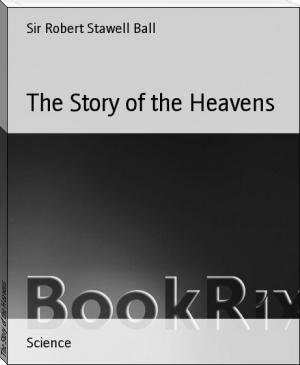
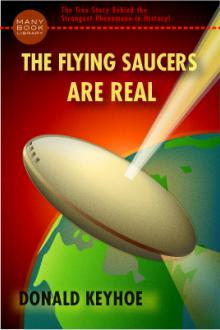

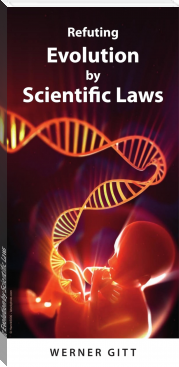
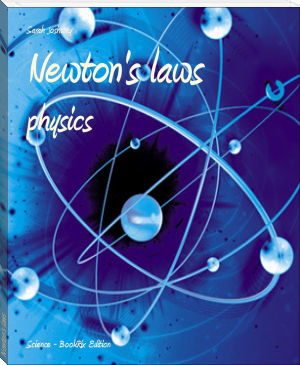
Comments (0)